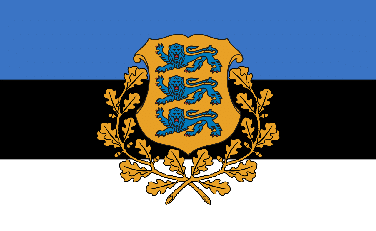Business Culture is very different in any country and can be an invisible barrier to those who are unprepared for its differences. Estonian business culture, for example, is much different than what Western businessmen are used to. As such, adequate research and preparation before going into dealings with Estonian partners is needed to ensure fruitful communication.
The History of Estonia

In 1945, during WWII, Estonia was annexed by the USSR, becoming the Estonian Soviet Socialist Republic. “Russification” began with Russian introduced as the country’s official language, and Communist institutions founded to run the country and guide its cultural and social development.
It was not until 1991, when the inhabitants fought continuously against the Soviet occupation, that Estonia gained back their sovereignty and independence as the Soviet Union fell. Changes followed soon afterwards. Estonian was reintroduced as the official language, the Estonian kroon replaced the Russian ruble, and a new constitution was adopted. Since then, Estonia has established a liberal democratic republic and an open market economy, which soon became very attractive to foreign investors, in part because of Estonia’s well-educated and creative workforce, and also because Estonia proved to still be culturally open to immigration, foreign investment, and interaction with the West despite years of Soviet occupation. In January 2011, Estonia switched to the Euro, further simplifying trade with and within the European Union.
The Norms of Estonian Business Culture
Despite the fact Estonia welcomes foreign investment and investors, some cultural aspects have to be considered when doing business in Estonia. Estonian business culture is very formal and matter-of-fact as Estonians like to keep their private and working life separate. Thus, unlike the American and European business cultures, small talk is rare and when it does occur, it is kept very short. Foreign business people therefore should not be offended if, for example, they are not asked about their families’ well being or otherwise “talked up” during negotiations or meetings.
Estonian Business Culture | Estonian Composure

Estonians are usually pragmatic, reserved, and unemotional when it comes to business. Only after they get to know their partners do they become more open. This behavior should not be seen as a sign of unfriendliness, but rather as a cultural trait of the Estonian people, who prefer business without exaggerations and marketing hype. Because Estonians are not emotional speakers, people who are emotional might be viewed as overbearing. Estonians are direct communicators and yet they speak in a very tactful and diplomatic way. The same behavior is expected from a guest. Hence, losing one’s temper or raising one’s voice can damage a person’s standing and reputation during negotiations or when forming a business relationship. Silence during a meeting should not be taken as awkwardness but as time to think, and possibly collect thoughts to answer a delicate question.
Estonian Business Culture | Greetings and Business Meetings

Negotiations and meetings proceed in a very traditional manner. The senior persons will open negotiations with a short speech and an introduction of their colleagues. Visitors are expected to do the same as well as to generally show gratitude to their hosts. Estonian culture considers hierarchy important; it is crucial to show respect to people in senior positions. People are addressed with their title and surname. Calling people by their first name is not common in a business meeting and might cause an awkward situation.
Estonian Business Culture | Communicating in the Estonian Language
After the introduction, business cards are usually exchanged. Although not expected, it is a nice gesture to add a translation on one half of the card. It is advisable to use a qualified translation services agency to avoid potential mistakes. A good way to engage sympathy and ease the atmosphere is to use some simple words or phrases in the Estonian language. It is not expected to learn the language in order to do business in this country because most Estonians are adequately proficient in English. Besides this, the Estonian language is a very difficult language even for linguists, due to its challenging pronunciation and its fourteen cases (in comparison, Russian has 6, German has 4, and English has only 2 cases). While you can learn a few useful phrases from great sites like the BBC, it is still recommended to hire professional interpreters and translators to help negotiations progress if they will not be solely conducted in English. A professional linguist who is familiar with business translation services and interpreting can also ensure that contracts are understood by both sides to the letter and help in making some finer points during the negotiation.
Estonian Business Culture | Economic Outlook of Estonia
Estonia has a very liberal market economy, and is open to foreign investment and trade. Government policies have aided the country in maintaining a high level of economic freedom, and in the past few years improvement has been seen in areas of business. Unemployment has dropped from nearly 17% in 2010 to about 5.9%. GDP is roughly $37.5 billion, and a 3.7% 5-year compound growth is expected.
Altogether one can say that Estonia, a country perhaps once shaped by its invaders, has loosened those bonds and has moved towards making its own strong economic and cultural advances. The outlook for the country is positive, and it remains an opportunity for foreign investors – so long as they do their research and respect Estonian business culture in the process.
*This article has been updated to reflect more recent economic statistics of Estonia
About Language Connections:
Language Connections is one of the top language service companies in the US. Over the last 30 years, we’ve focused on providing the best business translation services, interpreting services, as well as interpreter training and customized language training programs. In addition to top-tier corporate language training, we offer certified corporate interpreters and professional business translation services in 200+ languages. Our network includes linguists with backgrounds in all major industries. They’re ready to meet your needs, whether they’re for technical translation services, legal translation, government translation services, international development translation services, education translation services, life sciences translation, or something else. Reach out to us today for a free quote on our cost-efficient and timely translation services, interpreters, or other linguistic services.
Language Connections LLC
2001 Beacon Street, Suite 105,
Boston, MA 02135
Phone: +1-617-731-3510
Email: service@languageconnections.com


